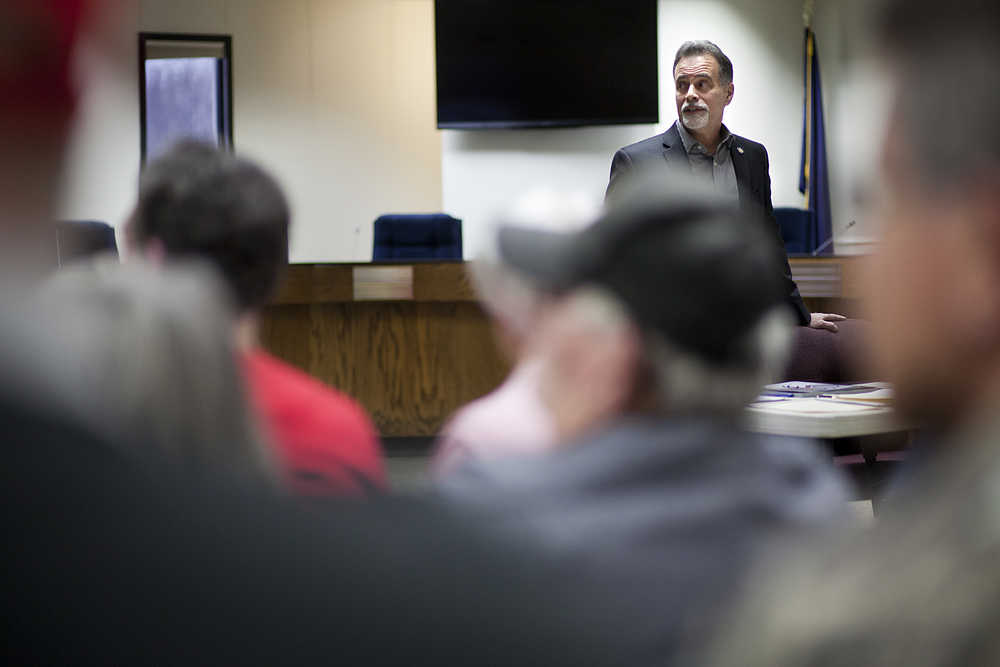Senator Peter Micciche, R-Soldotna, began his town hall meeting on Friday evening in Soldotna’s borough assembly chamber by speaking on Alaska’s reduced state budget.
Micciche said that this year’s budget will require “difficult choices,” especially regarding the capital budget that gives state funding to municipal projects.
“There will be no capital,” said Micciche. “If I see capital go into any of the districts this year, I’m going to be very noisy about it. Unless it’s something that comes with a federal match or federal funding, where we meet our capital to theirs, it’s going to be a year without capital.”
In an interview after the meeting, Micciche said that decisions about spending cuts required public input.
“We need to hear from people about what services are important to them,” Micciche said. “It’s going to be difficult for people to accept that nearly every service will see some effect, and that lower priority services will probably see a fairly significant effect.”
Micciche said that the state’s present budget problems are not unprecedented, offering a comparison to the fall in oil revenue that occurred in the early 80’s.
“We’ve been in worse financial conditions in the state before,” Micciche said. “Back in ‘81, we were much higher (in inflation-adjusted per captita spending) than we are right now. The reality of it is, we had no savings, and we were in a much more challenging position than we are now.”
After the meeting, Micciche said that the ‘80s budget drop also offered a precedent for recovery.
“They adjusted their spending, and had a long period, a flat period afterward, until revenues caught up to spending,” Micciche said. “What I’m saying is that we’re in a better position now with our cash reserves. I think we can get ahead of this, and reduce it to the point where we have a sustainable budget, and move on from there with a long-term plan that takes sustainability into account with every year’s budget cycle when we’re dealing with an operating budget.”
At the audience’s request, Micciche gave a second presentation outlining what uses of marijuana are and are not currently legal in Alaska. He said that he did not agree with the ballot initiative that legalized marijuana and had particular concerns about commercialized marijuana, but would be responsive to the vote.
“If Alaskans choose to legalize marijuana, I’m very much against the commercial aspect of it,” he said. “I don’t know if that was the intent of people that voted yes. I don’t know if the people who voted yes, if they had flashing green marijuana leaves in their neighborhoods in mind. But it passed. And one of the rules I have is that we’re going to follow the will of the voters, no matter what they do themselves.”
In the question and answer session following the presentations, Micciche responded to several inquiries about Senate Bill 1, his sponsored bill to limit smoking in workplaces. Micciche said that the smoking bans under SB1 were similar to those created by local laws throughout the state.
“This has been law in Anchorage for years, and there’s an average of three violations filed a year,” Micciche said. “It’s truly complaint-driven. And it’s purposefully designed not to be heavy-handed. It’s essentially making the statement that your right to swing your fist ends where your neighbor’s nose begins.”
Micciche said that SB 1 was a work in progress that would likely change in future legislative sessions.
“As we learn different things, we’re starting to adjust the bill,” he said.
Reach Ben Boettger at ben.boettger@peninsulaclarion.com

